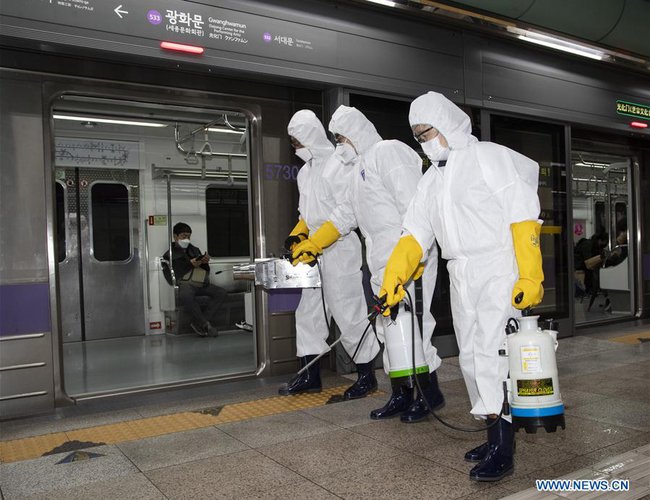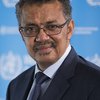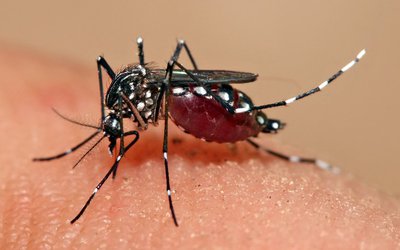
In the past 24 hours, China reported 329 cases – the lowest in more than a month. As of 6 am Geneva time this morning, China has reported a total of 78,959 cases of COVID-19 to WHO, including 2791 deaths. Outside China, there are now 4351 cases in 49 countries and 67 deaths.
Since yesterday, Denmark, Estonia, Lithuania, Netherlands and Nigeria have all reported their first cases. All these cases have links to Italy.
24 cases have been exported from Italy to 14 countries, and 97 cases have been exported from Iran to 11 countries.
The continued increase in the number of cases, and the number of affected countries over the last few days, are clearly of concern.
Our epidemiologists have been monitoring these developments continuously, and we have now increased our assessment of the risk of spread and the risk of the impact of COVID-19 to very high at a global level.
What we see at the moment are linked epidemics of COVID-19 in several countries, but most cases can still be traced to known contacts or clusters of cases. We do not see evidence as yet that the virus is spreading freely in communities.
As long as that’s the case, we still have a chance of containing this virus, if robust action is taken to detect cases early, isolate and care for patients and trace contacts.
As I said yesterday, there are different scenarios in different countries and different scenarios within the same country. The key to containing this virus is to break the chains of transmission.
Yesterday I spoke about the things countries must do to prepare for cases and prevent onward transmission. The report of the WHO-China Joint Mission has now published its report, which is available in English on the WHO website, and will also be posted in Chinese on the National Health Commission website.
The report includes a wealth of information, and 22 recommendations for China, for affected and unaffected countries, for the international community, and the general public.
It calls for all countries to educate their populations, to expand surveillance, to find, isolate and care for every case, to trace every contact, and to take an all-of-government and all-of-society approach – this is not a job for the health ministry alone.
At the same time, work is also progressing on vaccines and therapeutics. More than 20 vaccines are in development globally, and several therapeutics are in clinical trials. We expect the first results in a few weeks.
But we don’t need to wait for vaccines and therapeutics. There are things every individual can do to protect themselves and others today.
Your risk depends on where you live, your age and general health. WHO can provide general guidance. You should also follow your national guidance and consult local health professionals.
But there are 10 basic things that you should know.
First, as we keep saying, clean your hands regularly with an alcohol-based hand rub, or wash them with soap and water.
Touching your face after touching contaminated surfaces or sick people is one of the ways the virus can be transmitted. By cleaning your hands, you can reduce your risk.
Second, clean surfaces regularly with disinfectant – for example, kitchen benches and work desks.
Third, educate yourself about COVID-19. Make sure your information comes from reliable sources – your local or national public health agency, the WHO website, or your local health professional. Everyone should know the symptoms – for most people, it starts with a fever and a dry cough, not a runny nose. Most people will have mild disease and get better without needing any special care.
Fourth, avoid traveling if you have a fever or cough and if you become sick while on a flight, inform the crew immediately. Once you get home, make contact with a health professional and tell them about where you have been.
Fifth, if you cough or sneeze, do it into your sleeve, or use a tissue. Dispose of the tissue immediately into a closed rubbish bin, and then clean your hands.
Sixth, if you are over 60 years old, or if you have an underlying condition like cardiovascular disease, a respiratory condition or diabetes, you have a higher risk of developing severe disease. You may wish to take extra precautions to avoid crowded areas or places where you might interact with people who are sick.
Seventh, for everyone, if you feel unwell, stay at home and call your doctor or local health professional. He or she will ask some questions about your symptoms, where you have been and who you have had contact with.
This will help to make sure you get the right advice, are directed to the right health facility, and will prevent you from infecting others.
Eighth, if you are sick, stay at home, and eat and sleep separately from your family, use different utensils and cutlery to eat.
Ninth, if you develop shortness of breath, call your doctor and seek care immediately.
And tenth, it’s normal and understandable to feel anxious, especially if you live in a country or community that has been affected. Find out what you can do in your community. Discuss how to stay safe with your workplace, school or place of worship.
Together, we are powerful. Containment starts with you. Our greatest enemy right now is not the virus itself. It’s fear, rumors and stigma.
And our greatest assets are facts, reason and solidarity. South Korea confirmed 571 more cases of the COVID-19 on Friday, raising the total number of infections to 2,337.
The number of infected patients totaled 2,337, up 571 from the previous day. The death toll was unchanged at 13. The Korea Centers for Disease Control and Prevention (KCDC) has updated the data twice a day at 10:00 a.m. and 5:00 p.m. local time.
Of the new patients, 447 were residents in Daegu, about 300 km southeast of the capital Seoul, and 64 came from its surrounding North Gyeongsang province.
The total number of infections in Daegu and North Gyeongsang province increased to 1,579 and 409 respectively.
The virus infection soared in recent days, with 1,735 new cases reported on Feb. 19-27. The country raised its four-tier virus alert to the highest "red" level on Sunday.
Daegu became the epicenter of the viral spread here as the biggest cluster of mass infections was found in the city with a 2.4 million population.
The cluster was linked to the church services of a homegrown minor religious sect, called Sincheonji, in Daegu. As of Friday morning, 840 cases were tied to the worship services.
A total of 117 cases were traced to Daenam Hospital in Cheongdo County, just south of Daegu. Test for all of about 650 patients and medical staff was completed as almost all of the patients at the hospital's psychiatric ward tested positive for the virus.
The cluster infection at the hospital was believed to have been linked to the Sincheonji sect as a number of followers attended a funeral ceremony for a brother of the Sincehonji founder.
The government designated Daegu and Cheongdo as a "special care zone" last week.
The health authorities completed testing about 1,300 Sincheonji followers of the Daegu branch, and the test results would be announced until this weekend.
The government secured the entire list of some 310,000 Sincheonji followers on Thursday. One-third of the followers was reached and checked, and 1,638 who showed symptoms across the country were placed under self-quarantine.
Since Jan. 3, the country has tested more than 81,000 people, among whom 48,593 tested negative for the COVID-19 virus and 30,237 were being checked.
One more patient was discharged from quarantine after making full recovery, lifting the total number of those discharged to 27.
Dr. Tedros Adhanom Ghebreyesus is the Director-General of the World Health Organization (WHO). Excerpts of the statement delivered by WHO Director-General's at the media briefing on COVID-19 - 28 February 2020

Dr. Tedros Adhanom Ghebreyesus
Dr.Tedros Adhanom Ghebreyesus is the Director General of WHO
- 100 Days Of First Reporting Of Pneumonia With Unknown Cause In China
- Apr 09, 2020
- Place Social Welfare Measures To Ensure Vulnerable People Have Food And Other Life Essential
- Apr 02, 2020
- Several Countries Have Demonstrated That This Virus Can Be Suppressed And Controlled
- Mar 12, 2020
- This Is No Time For Complacency. This Is A Time For Continued Vigilance
- Feb 27, 2020














